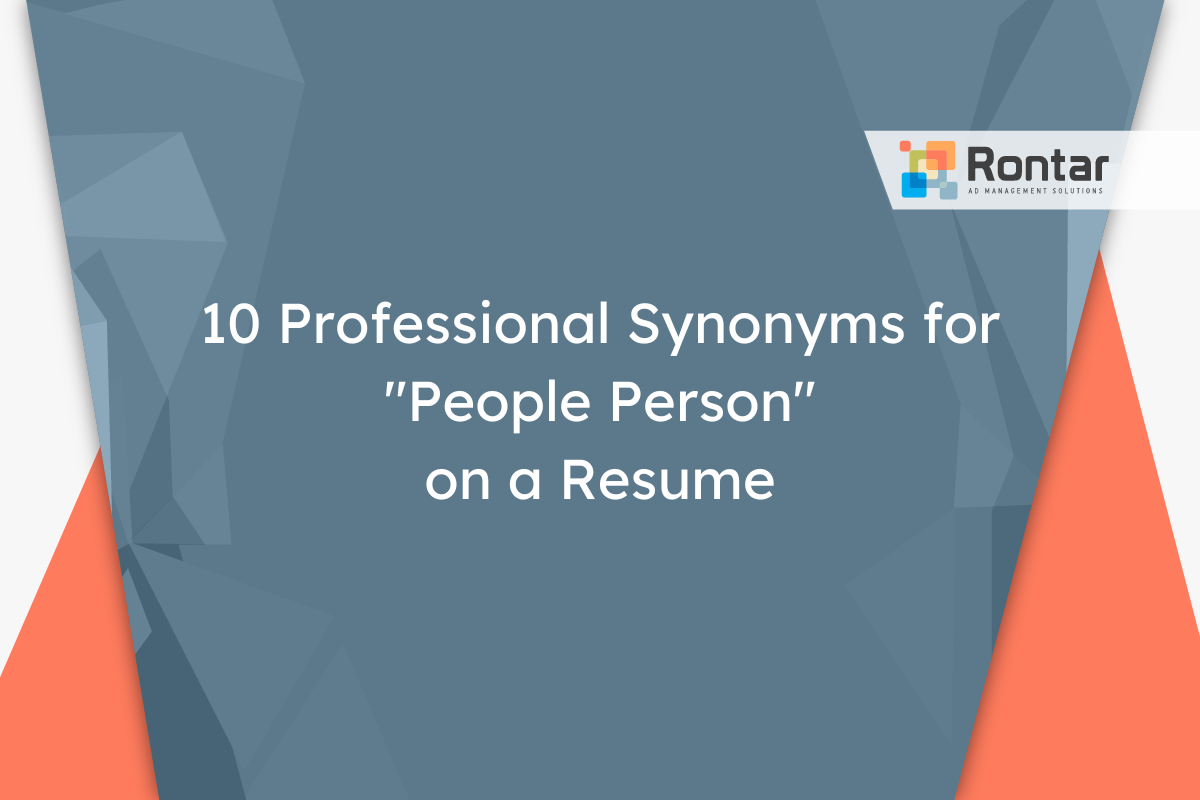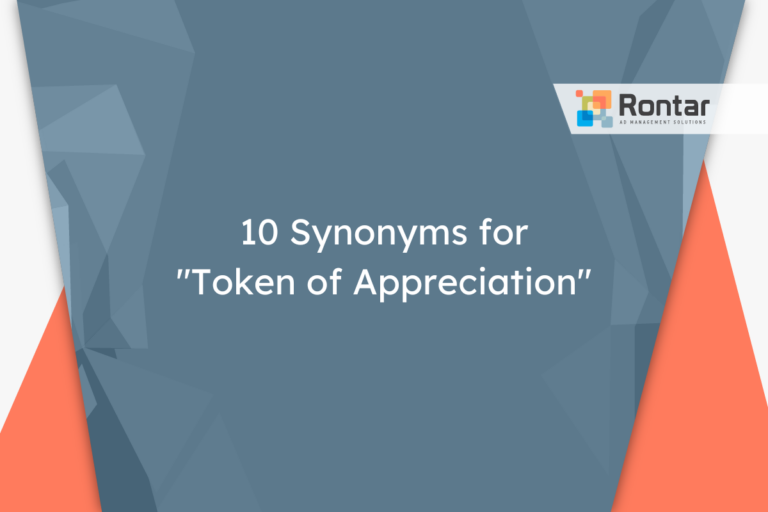10 Professional Synonyms for “People Person” on a Resume

If you’re good with people, your resume should show it. But using the phrase “people person” might not be the best way to stand out.
This article lists 10 professional alternatives that can make a stronger impression. Each one is explained, along with when it’s best to use them, and provides examples of how to include them in your resume.
Is “People Person” a Good Resume Phrase?
Using “people person” on a resume can be tricky. It’s a popular phrase for showing that you like working with other people and are good at it. However, whether it’s a good choice depends on the job you’re applying for and how you present your skills.
In jobs that require a lot of teamwork, customer interaction, or sales skills, saying you’re a “people person” can quickly show you’re fit for the role. Here’s an example of how to use it:
Example:
People person with extensive experience in customer service and conflict resolution, thriving in team-oriented environments
Pros:
- Quickly shows you’re good with people
- Makes your resume friendly and approachable
- Highlights soft skills important for teamwork and customer-facing roles
Cons:
- Can be seen as vague or overused
- Doesn’t specify your skills or achievements
- May not stand out to hiring managers who see it often
Someone might want to use an alternative phrase because “people person” can appear too general and might not capture the full extent of their interpersonal skills.
10 Other Ways to Say “People Person” on a Resume
When you want to show that you’re good with people, there are several professional synonyms you can use on your resume. Here are ten alternatives:
- Team Player
- Client-Focused
- Collaborative
- Strong Interpersonal Skills
- Effective Communicator
- Customer-Oriented
- Relationship Builder
- Empathetic Listener
- Personable
- Engaging Personality
1. Team Player
Compared to “people person,” “Team Player” is a more professional and specific synonym that highlights your ability to work well in a group. This alternative suggests not only that you enjoy working with others but also that you contribute to achieving common goals.
This alternative is better suited for resumes targeting jobs that demand cooperation, coordination, and group effort. It’s especially compelling in environments where teamwork is critical to success.
Here are two samples:
I prided myself on being a team player who always supports colleagues to reach our shared goals.
My role required a team player mentality to manage projects effectively with stakeholders.
2. Client-Focused
“Client-Focused” is more specific than “people person” and emphasizes your dedication to understanding and fulfilling the needs of clients. This professional alternative suggests an ability to build and maintain client relationships.
It is particularly suited for roles that involve direct client interaction, where understanding client needs and ensuring their satisfaction are paramount.
Examples:
As a client-focused sales manager, I consistently exceed sales targets through personalized client engagement.
My client-focused approach in customer service significantly improved client retention rates.
3. Collaborative
“Collaborative” is another professional synonym for “people person” that places emphasis on working together with colleagues to achieve goals. It suggests a willingness to engage with others’ ideas and integrate them into successful outcomes.
This phrasing works well for roles where success relies on pooling ideas, skills, and efforts from different team members to complete projects or solve problems.
Examples:
Developed a new product line through a collaborative effort with the R&D and marketing departments.
Facilitated a collaborative workshop that increased team efficiency by 40%.
4. Strong Interpersonal Skills
This phrase is a more formal alternative to “people person” that clearly communicates your ability to interact effectively with others. It’s broad but indicates both verbal and non-verbal communication skills, empathy, and the ability to listen and respond.
Better suited for positions that require regular interaction with team members, clients, or stakeholders, where clear and effective communication is essential.
Sample examples:
Utilized strong interpersonal skills to resolve conflicts and foster a positive work environment.
Leveraged strong interpersonal skills to negotiate successful deals with international partners.
5. Effective Communicator
“Effective Communicator” specifically highlights your ability to convey messages clearly and listen well. It’s slightly less informal than “people person” but carries a strong professional implication about your communication skills.
This choice is particularly appropriate for roles where clear communication is crucial, such as customer service, management, or any role requiring regular presentation or reporting.
Examples:
Recognized as an effective communicator during company-wide conferences.
Improved team morale and efficiency as an effective communicator to navigate through change management.
6. Customer-Oriented
Choosing “Customer-Oriented” as an alternative sharpens the focus onto your ability to meet or exceed customer expectations. It’s a professional way of saying you’re a “people person” with a commitment to delivering exceptional customer service.
This is best for jobs in service industries, retail, or any role where customer satisfaction is a key performance indicator.
Here are two samples:
Boosted company ratings as a customer-oriented manager attentive to consumer needs.
Achieved a 98% customer satisfaction rating through a customer-oriented service strategy.
7. Relationship Builder
Being a “Relationship Builder” implies a focused ability to establish and nurture professional relationships. It’s a polite and compelling way to express that you’re good at connecting with people on a professional level.
This synonym is especially suitable for roles in sales, business development, and any position where forging strong relationships is a route to success.
Examples:
Exceeded sales targets by being a proactive relationship builder with key accounts.
Enhanced partner relations as a relationship builder, fostering trust and long-term collaborations.
8. Empathetic Listener
Describing yourself as an “Empathetic Listener” places focus on your ability to understand and react appropriately to the needs of others. It suggests a depth of interpersonal engagement beyond mere surface interactions.
Most useful for roles in counseling, HR, or any job where understanding and addressing the concerns of others is a regular task.
Examples:
Solved complex client issues as an empathetic listener, leading to higher retention rates.
Supported team well-being and resolved workplace disputes as an empathetic listener.
9. Personable
Identifying yourself as “Personable” is a friendly, more informal synonym for “people person.” It indicates that you are approachable, easy to talk to, and have a positive demeanor.
It fits well in roles where a likable personality can contribute to the job, such as in hospitality, retail, or any customer-facing position.
Examples:
Delivered exceptional customer service as a personable front desk associate, enhancing guest experiences.
Increased sales leads as a personable representative at trade shows.
10. Engaging Personality
An “Engaging Personality” suggests you have a magnetic charm or charisma that draws others to you. It’s a way of saying you’re a “people person” without using those exact words, adding a hint of enthusiasm and energy.
This alternative shines in roles involving public speaking, entertainment, or any position where winning over an audience or team is beneficial.
Here are two examples:
Led successful fundraising events as a host with an engaging personality.
Boosted team morale and creativity by bringing an engaging personality to brainstorming sessions.
Final Thoughts
Finding the right way to say you’re a “people person” on your resume can help you stand out to employers. The synonyms we’ve discussed offer more specific and professional ways to describe your interpersonal skills. Choosing the right one can highlight your strengths and fit for the job.






